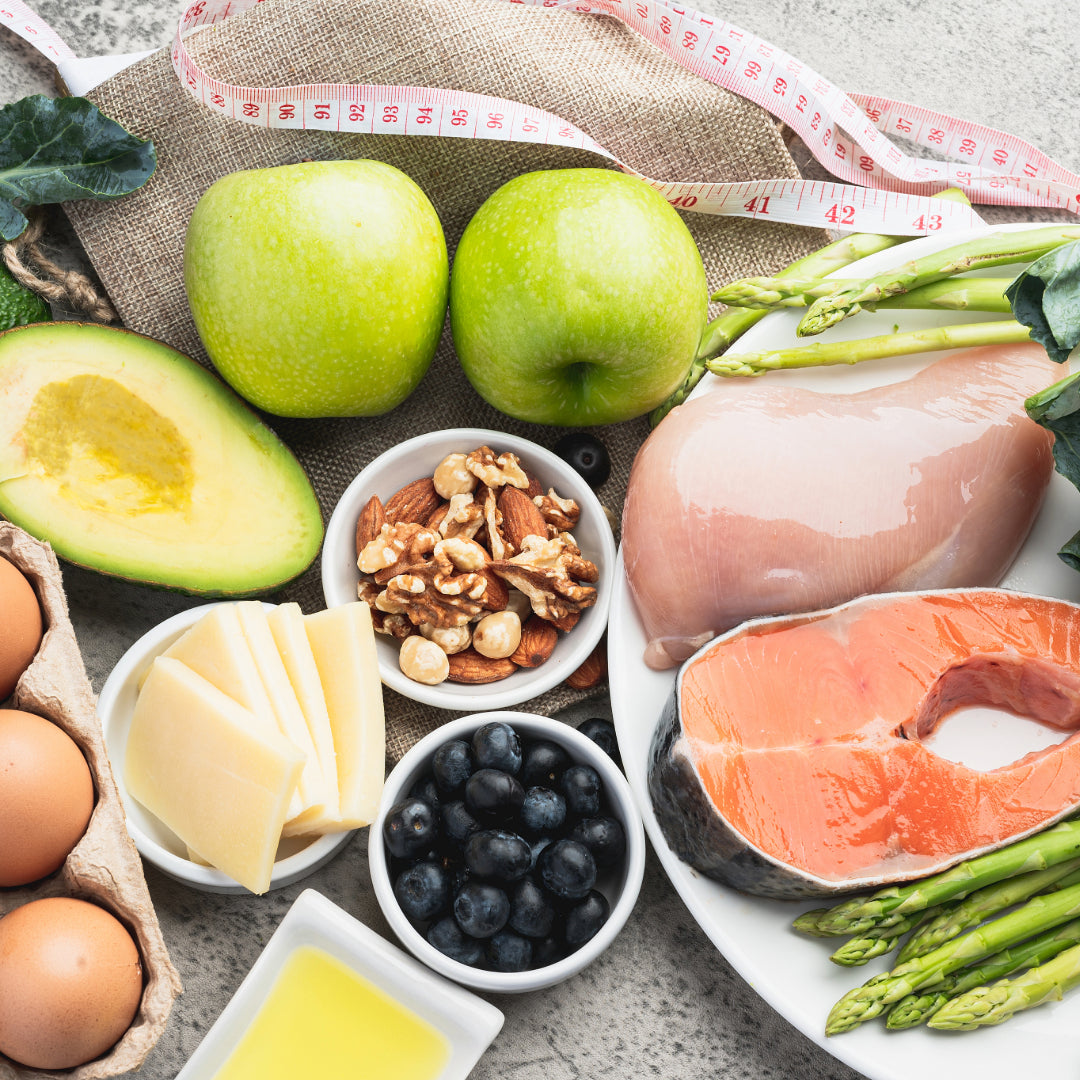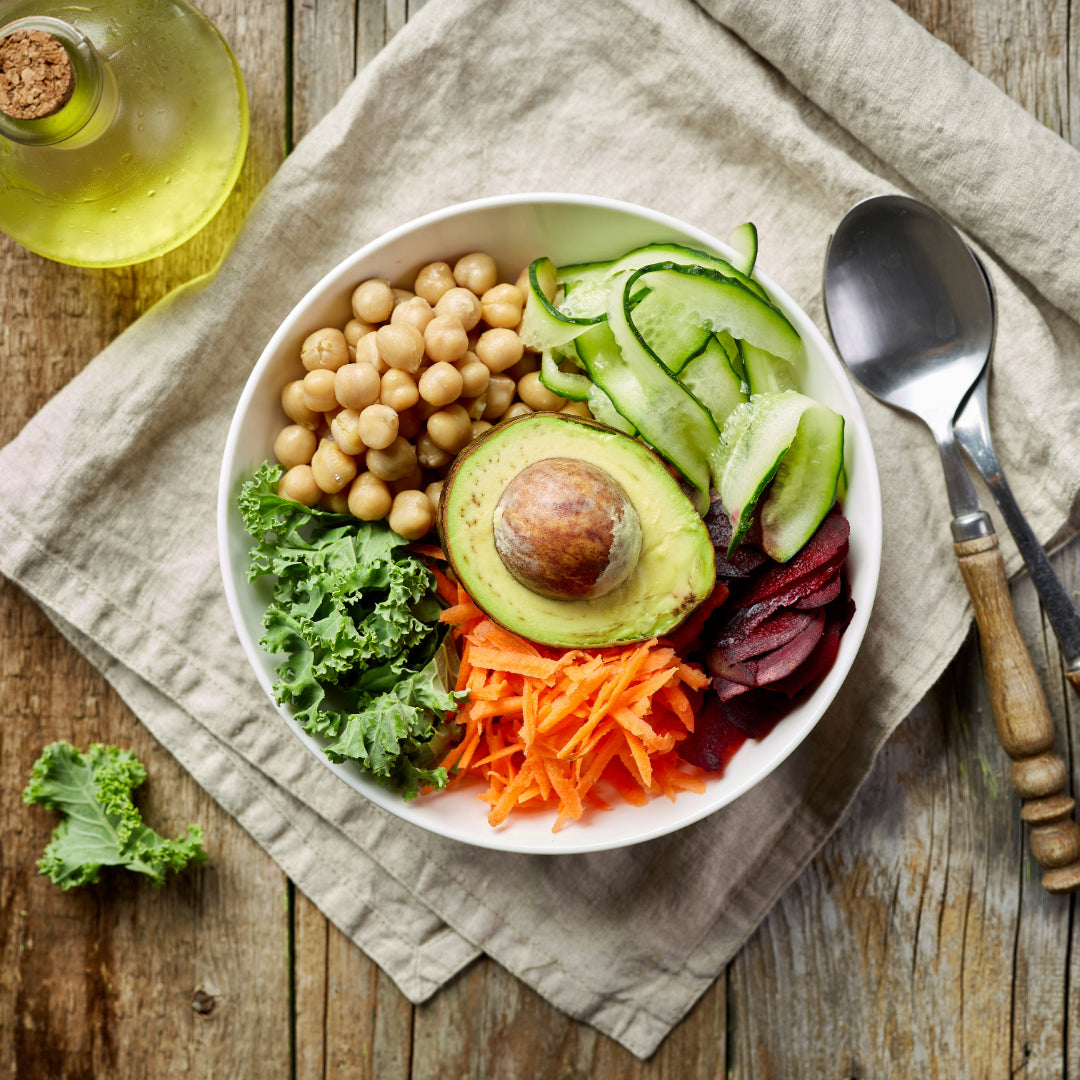
The Ultimate Keto Diet Guide: Benefits, Risks, and Practical Tips
Introduction
The ketogenic diet, commonly known as the keto diet, is a low-carb, high-fat diet that has gained popularity for its potential health benefits, including weight loss and improved metabolic health. This guide provides a comprehensive overview of the keto diet, its benefits, risks, and practical tips for those considering this eating plan.
How We Vet Brands and Products
Our team carefully reviews the quality, efficacy, and safety of brands and products recommended in our guides to ensure you receive the best information possible.
What Are the Basic Rules for Keto?
Keto Basics
The keto diet involves drastically reducing carbohydrate intake and replacing it with fat. This reduction in carbs puts your body into a metabolic state called ketosis, where it becomes highly efficient at burning fat for energy.
What Do I Eat on the Keto Diet?
To maintain ketosis, your diet should primarily consist of the following macronutrient ratios:
- Carbohydrates: 5-10%
- Fat: 70-80%
- Protein: 20-25%
What is Ketosis?
Ketosis is a metabolic state where your body uses fat for fuel instead of carbohydrates. This state is achieved by limiting carb intake and increasing fat consumption.
Can the Keto Diet Help Me Lose Weight?
Yes, the keto diet can be an effective weight loss strategy. By reducing carb intake, your body burns fat for energy, leading to weight loss.
Discover More About Type 2 Diabetes
Explore how the keto diet can benefit those with type 2 diabetes by improving insulin sensitivity and reducing blood sugar levels.
Is the Keto Diet Good for People with Diabetes and Prediabetes?
Studies show that the keto diet can improve insulin sensitivity and promote fat loss, which are crucial for managing diabetes and prediabetes.
What Are the Other Benefits of the Keto Diet?
Beyond weight loss and diabetes management, the keto diet may offer benefits such as:
- Reduced risk of heart disease
- Potential cancer treatment
- Improved symptoms of Alzheimer’s and Parkinson’s diseases
What Foods Do I Avoid on a Keto Diet?
To maintain ketosis, avoid high-carb foods such as:
- Sugary foods and drinks
- Grains and starches
- Most fruits
- Beans and legumes
- Root vegetables
What Foods Can I Eat on the Keto Diet?
Base your meals around these keto-friendly foods:
- Meat and poultry
- Fatty fish
- Eggs
- Butter and cream
- Cheese
- Nuts and seeds
- Healthy oils
- Low-carb vegetables
A Sample Keto Meal Plan for 1 Week
Monday
- Breakfast: Veggie and egg muffins
- Lunch: Chicken salad with olive oil and feta
- Dinner: Salmon with asparagus
Tuesday
- Breakfast: Spinach and basil omelet
- Lunch: Almond milk smoothie with peanut butter and strawberries
- Dinner: Cheese-shell tacos with salsa
Wednesday
- Breakfast: Chia pudding with coconut and blackberries
- Lunch: Avocado shrimp salad
- Dinner: Pork chops with Parmesan cheese and broccoli
Thursday
- Breakfast: Omelet with avocado and salsa
- Lunch: Nuts and celery with guacamole
- Dinner: Chicken stuffed with pesto and cream cheese
Friday
- Breakfast: Greek yogurt with peanut butter and berries
- Lunch: Ground beef lettuce wrap tacos
- Dinner: Loaded cauliflower and mixed veggies
Saturday
- Breakfast: Cream cheese pancakes with blueberries
- Lunch: Zucchini and beet salad
- Dinner: White fish with kale and pine nuts
Sunday
- Breakfast: Fried eggs with mushrooms
- Lunch: Sesame chicken and broccoli
- Dinner: Spaghetti squash Bolognese
Healthy Keto Snacks
Great snacks for a keto diet include:
- Fatty meat or fish
- Cheese
- Nuts and seeds
- Keto sushi bites
- Olives
- Hard-boiled eggs
- Dark chocolate
- Greek yogurt with nut butter
Keto Tips and Tricks
Follow these tips to succeed on the keto diet:
- Familiarize yourself with food labels.
- Plan your meals ahead of time.
- Use keto-friendly recipes and meal delivery services.
- Bring your own food to social gatherings.
Tips for Eating Out on a Ketogenic Diet
When dining out, opt for meat or fish-based dishes and replace high-carb sides with vegetables. Choose bun-less burgers or egg-based meals like omelets.
Side Effects and How to Minimize Them
Common side effects of the keto diet include:
- Keto flu: Symptoms like headache and fatigue during the initial phase
- Constipation: Due to low fiber intake
- Nutrient deficiencies: Ensure a balanced intake of vitamins and minerals
Does Being on the Keto Diet Have Any Risks?
While the keto diet has benefits, it may also pose risks such as:
- High saturated fat intake
- Liver and kidney issues
- Nutrient deficiencies
- Constipation
- Fuzzy thinking and mood swings
Consult your doctor before starting the diet, especially if you have pre-existing conditions.
Are There Supplements for a Keto Diet?
Consider these supplements to support your keto journey:
- MCT oil for energy
- Electrolytes to balance minerals
- Exogenous ketones to boost ketone levels
- Whey protein to increase daily protein intake
The Bottom Line
The keto diet offers potential benefits for weight loss and metabolic health by drastically reducing carbohydrate intake and replacing it with healthy fats. However, it also comes with risks and side effects that need careful management. Always consult with healthcare professionals before starting any new diet.
How We Reviewed This Article
Our content is based on thorough research and evidence from reputable sources to provide you with the most accurate and reliable information.
Evidence-Based
All claims and recommendations in this article are supported by scientific studies and expert opinions.

